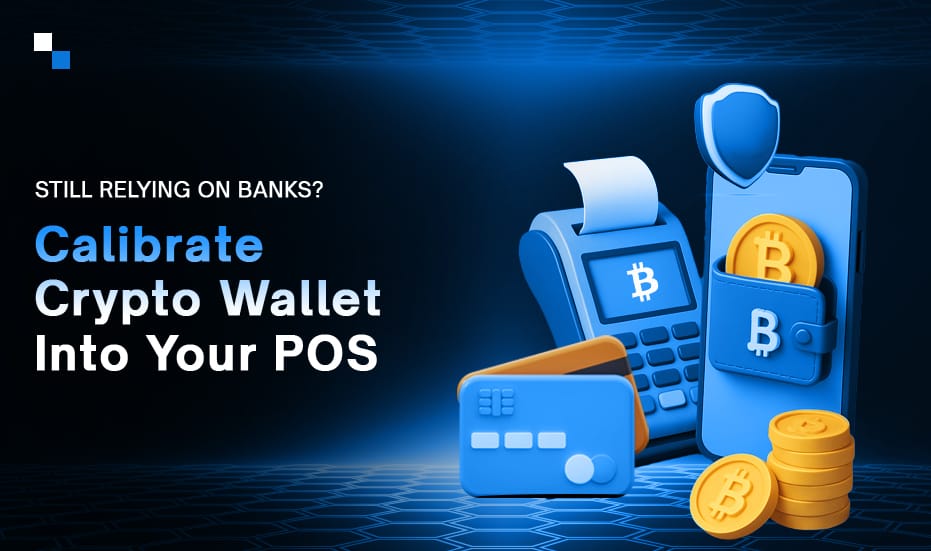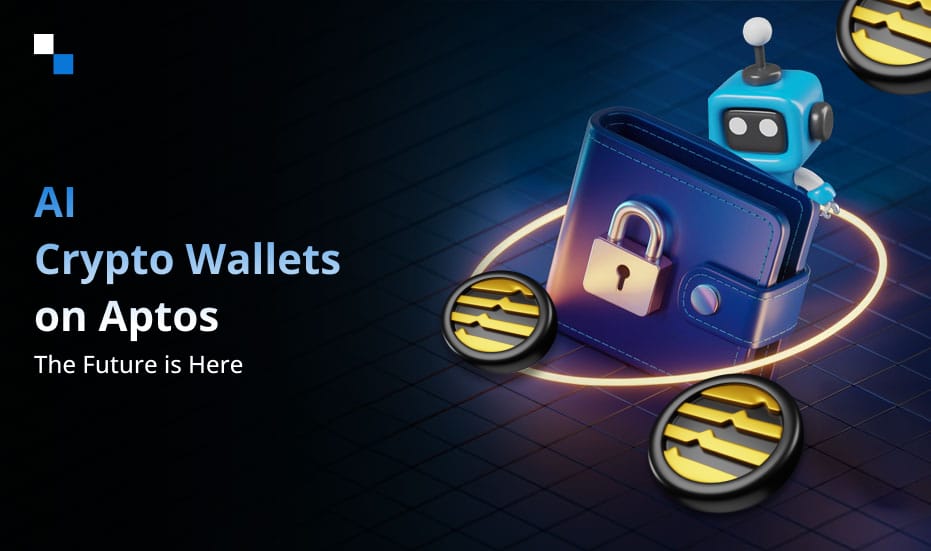
Smart Contract Auditing with AI’s Unwavering Eye for Detail
November 27, 2024
Top Layer 3 Blockchain Solutions in 2025
November 27, 2024The evolution of white-label DeFi wallet has brought forth an indispensable tool in managing asset tokenization and the growing adoption of Real World Assets within blockchain ecosystems. These wallets integrate advanced functionalities like DIDs to enable seamless and secure user authentication while also ensuring compatibility with emerging regulatory frameworks. The development process, tailored to business requirements, balances efficiency and functionality, with white-label Defi wallet solutions capable of being designed and delivered in as little as 7 days. Combining features like cross-chain operability, cost-effective scalability, and tokenized asset management, these wallets are at the forefront of enabling decentralized access to both digital and real-world financial instruments.
Understanding the Need for White Label De-Fi Wallet in Asset Tokenization Market 2025
In 2025, white-label DeFi wallets will become a critical infrastructure component for the asset tokenization ecosystem, aligning with the broader trend of decentralized finance (DeFi) and the increasing digitization of tangible assets. As institutional and retail investors flock to tokenized markets, there is an urgent need for scalable, secure, and compliant solutions that facilitate seamless interaction with DeFi protocols.
White Label DeFi Wallet Services provides businesses with customizable platforms that integrate directly with blockchain networks, smart contracts, and decentralized exchanges. These wallets support fractional ownership, cross-chain interoperability, and compliance with regulatory frameworks such as AML/KYC. By enabling efficient asset transfers, secure custody, and enhanced user experiences, white-label wallets have become indispensable tools for tokenized RWAs like real estate, commodities, and art.The increasing demand for tokenized assets due to global access, fractionalized investing, and expanding liquidity pools the utility of white-label DeFi wallets becomes evident. Integrating DeFi wallets with asset tokenization is not just a trend; it’s a strategic necessity for businesses to maintain competitiveness and capitalize on a fast-moving market.
How Do White-Label DeFi Wallets Facilitate RWA Tokenization?
White-label DeFi wallet service providers are revolutionizing the tokenization of RWAs by offering a secure, scalable, and customizable platform for businesses to convert physical assets into digital tokens. Asset tokenization involves representing a tangible real-world asset—such as real estate, art, commodities, or intellectual property—as a tradable digital token on the blockchain. White-label crypto wallet are the essential interface through which users interact with these tokenized assets, enabling easy access to DeFi markets.
These wallets integrate seamlessly with smart contracts and DEXs, ensuring tokenized assets can be bought, sold, and traded in a decentralized environment. The wallet facilitates the issuance of tokens tied to specific assets and allows for secure custody of the tokens and the underlying assets. Users can manage tokenized assets, execute transactions, and participate in DeFi protocols like staking, lending, and liquidity pooling, all within a single, branded interface.
In essence, white-label DeFi wallet development solutions bridge the gap between traditional asset markets and the emerging world of decentralized finance, providing a seamless user experience while empowering businesses to unlock new revenue streams through tokenized assets. They enable the creation of secure, efficient, and accessible platforms that simplify the interaction with tokenized RWAs, thereby expanding the reach and liquidity of these assets in the broader DeFi ecosystem.
Top-Tier Benefits of Leveraging White-Label DeFi Wallets in RWA Tokenization
Leveraging the white-label DeFi wallet platform in tokenizing RWAs offers several groundbreaking benefits that address critical challenges in asset management, investment, and accessibility. Businesses, investors, and platforms hoping to participate in the expanding RWA tokenization market are finding these wallets indispensable tools as the DeFi space develops. Below, we explore the technical benefits of using white-label DeFi wallets in tokenized assets.
1. Seamless Integration with Decentralized Finance Ecosystem
White-label DeFi wallets seamlessly integrate with the entire DeFi ecosystem, enabling RWA tokens to interact effortlessly with various decentralized protocols, including lending, staking, and liquidity farming. This integration empowers users to engage in financial services traditionally requiring centralized intermediaries.
2. Enhanced Security and Custody Management
Security is a critical concern when it comes to both digital assets and their underlying real-world counterparts. The white-label DeFi wallet platform offers robust custody solutions for tokenized RWAs, ensuring safe storage and management of both digital tokens and physical assets.
3. Fractional Ownership and Market Liquidity
One of the most significant advantages of tokenizing real-world assets is the ability to offer fractional ownership, making high-value assets accessible to a broader market. White-label DeFi wallets enable the easy fractionalization of assets like real estate or fine art, allowing businesses to reach a global audience and create more liquid markets for traditionally illiquid assets.
4. Global Accessibility and 24/7 Markets
Market hours and geographic boundaries frequently impose restrictions on traditional asset markets. White-label DeFi wallet development solutions break down these barriers, allowing for 24/7 trading and global participation in tokenized asset markets.
5. Simplified Regulatory Compliance (AML/KYC)
Compliance with regulatory standards is a major concern in the tokenization of RWAs, especially when dealing with assets like real estate, securities, or art. White-label DeFi wallets come equipped with integrated AML and KYC solutions, ensuring that businesses can tokenize and manage assets while remaining compliant with jurisdictional laws.
6. Cross-Chain Interoperability and Token Mobility
The ability to move tokenized assets across different blockchain networks enhances both interoperability and market reach. White-label DeFi wallet platform facilitates cross-chain compatibility, allowing tokenized RWAs to be used across various blockchain ecosystems like Ethereum, BSC, Polkadot, and others.
7. Cost-Efficiency and Reduced Intermediary Fees
Traditional asset tokenization requires numerous intermediaries, including custodians, brokers, and legal advisors, all of which add costs and complexity. White-label DeFi wallets dramatically reduce the need for intermediaries by enabling direct peer-to-peer transactions.
8. Customizable Branding and User Experience
White-label DeFi wallets provide businesses with a customizable, branded platform to engage their customers, offering a tailored user experience for those dealing with tokenized RWAs.
The benefits of leveraging white-label DeFi wallets in RWA tokenization are both technical and strategic, enabling businesses and investors to capitalize on the rapidly growing DeFi ecosystem. As the demand for tokenized assets continues to rise, businesses that invest in white-label DeFi wallet development services will be better positioned to thrive in this evolving market, while investors gain access to innovative, low-cost, and highly liquid investment opportunities.

Why Should Businesses Integrate DIDs with White-Label DeFi Wallets for Asset Tokenization?
Integrating Decentralized Identity Solutions with white-label DeFi wallets is crucial for businesses looking to tokenize RWAs in a secure, compliant, and efficient manner. DIDs provide a self-sovereign identity system that allows users to control their personal information and engage in tokenized transactions without relying on centralized authorities.
Integrating DIDs into asset tokenization—the process of converting tangible assets, such as real estate or artwork, into digital tokens—ensures that every transaction is linked to a validated identity, boosting transparency and trust. Additionally, this system facilitates adherence to regulatory standards like KYC/AML, assisting companies in navigating the intricacies of international financial regulations while protecting user privacy.
Moreover, DIDs enable secure authentication and privacy-preserving data sharing, ensuring that only necessary information is disclosed during transactions. As a result, businesses can offer a seamless, secure experience for users while maintaining the flexibility and scalability required for the growing asset tokenization market. Once you are on the verge of planning and developing wallet solutions for your business, the next step lies in choosing the right white-label defi wallet development company for yourself. Let us scroll down to explore how to choose the best for us!
How to Choose the Right White-Label DeFi Wallet Company?
- Blockchain Compatibility – Ensure the wallet supports relevant blockchains like Ethereum, Binance Smart Chain, and others for seamless asset tokenization.
- Security Features – Look for advanced security protocols such as encryption, multi-signature, and 2FA to protect assets.
- Customization Options – Choose a provider that offers full customization for UI/UX to align with your brand and user needs.
- Regulatory Compliance – Ensure the wallet can integrate KYC and AML procedures to meet global regulatory standards.
- DeFi Protocol Integration – Check if the wallet supports easy integration with key DeFi protocols for lending, staking, and liquidity.
- Customer Support – Verify that the provider offers reliable, round-the-clock support for technical issues.
- Transaction Speed & Costs – Ensure the wallet supports fast transactions with low gas fees to enhance the user experience.
- Scalability & Future-Proofing – Choose a wallet built on adaptable, open-source technology that can evolve with future blockchain trends.
The ROI Expectation: Investing In White-Label DeFi Wallet Development Services For Asset Tokenization
Investing in white-label DeFi wallet development services for asset tokenization offer businesses high ROI in several key areas-
1. Global Market Access & Liquidity : Tokenized assets open up global markets, increasing liquidity and allowing businesses to tap into a broader investor base, driving asset value and faster turnover.
2. Reduced Operational Costs : White-label wallets streamline operations by eliminating intermediaries, reducing transaction fees, and lowering overhead, thus improving profit margins.
3. Attracting Investors : White-label de-fi wallet platforms with strong security and compliance (AML/KYC) features help attract both institutional and retail investors, increasing capital inflow and enhancing market credibility.
4. Faster Capital Deployment : Tokenization enables quicker access to capital, as businesses can unlock liquidity from previously illiquid assets, accelerating growth and expansion.
5. Competitive Advantage : Early adoption of DeFi wallets gives businesses a market-leading edge, positioning them as innovators and attracting more customers and partners.
6. Increased Transaction Volume : A customized wallet experience drives user engagement, resulting in higher transaction volumes and increased revenue from fees and services.
How Much Does White-Label DeFi Wallet Development Cost?
The cost of a white-label DeFi wallet development depends on several factors:
✅ Basic wallets are cheaper, while advanced features like staking, cross-chain support, and DeFi protocol integration increase costs.
✅ Stronger security (e.g., multi-signature, 2FA, encryption) adds to development costs due to additional complexity and testing.
✅ Supporting multiple blockchains or integrating with DeFi protocols raises the cost of development.
✅ Highly customized UI/UX design and unique features will increase the cost compared to a standard wallet template.
✅ Adding regulatory features like AML/KYC compliance increases development time and costs.
✅ Teams in higher-cost regions or with specialized expertise typically charge more.
✅ Comprehensive testing, bug fixes, and ongoing maintenance add to the overall cost.
✅ Building scalability for future updates or handling a large user base requires more resources and adds to initial costs.
How Much Time Does It Take To Create A White-Label DeFi Wallet?
White-label DeFi wallet development requires a balance of technical expertise, precision, and customization to meet specific business needs. DeFi wallet solutions that are feature-rich, safe, and incredibly scalable are expertly crafted by our team of talented developers and blockchain specialists. Modern technology and efficient procedures are used to make sure your wallet is prepared to improve business operations. A prestigious white-label de-fi wallet development company can efficiently design and deliver customized DeFi wallets within an impressive timeframe of just 7 days by leveraging their immense expertise, helping you accelerate your entry into the decentralized finance ecosystem.
Shake Hands With A White Label-Defi Wallet Development Company
Investing in white-label DeFi wallets are a strategic move as markets for tokenized RWAs and decentralized finance are rapidly evolving, offering businesses unparalleled opportunities for growth, liquidity, and global reach. Now is the perfect time to embrace this transformative trend.
Partnering with a trusted white-label DeFi wallet development company like Antier ensures you gain access to advanced solutions tailored to your needs. With deep expertise and a team of blockchain professionals, we deliver seamless, scalable, and secure platforms. We boast a vast team of experts who are adept at offering comprehensive white label defi wallet development services, including:
- Customizable white-label DeFi wallet platforms
- Integration with DeFi protocols
- Multi-chain compatibility
- Regulatory compliance (KYC/AML)
- Robust security features
- UI/UX customization for enhanced user experience



